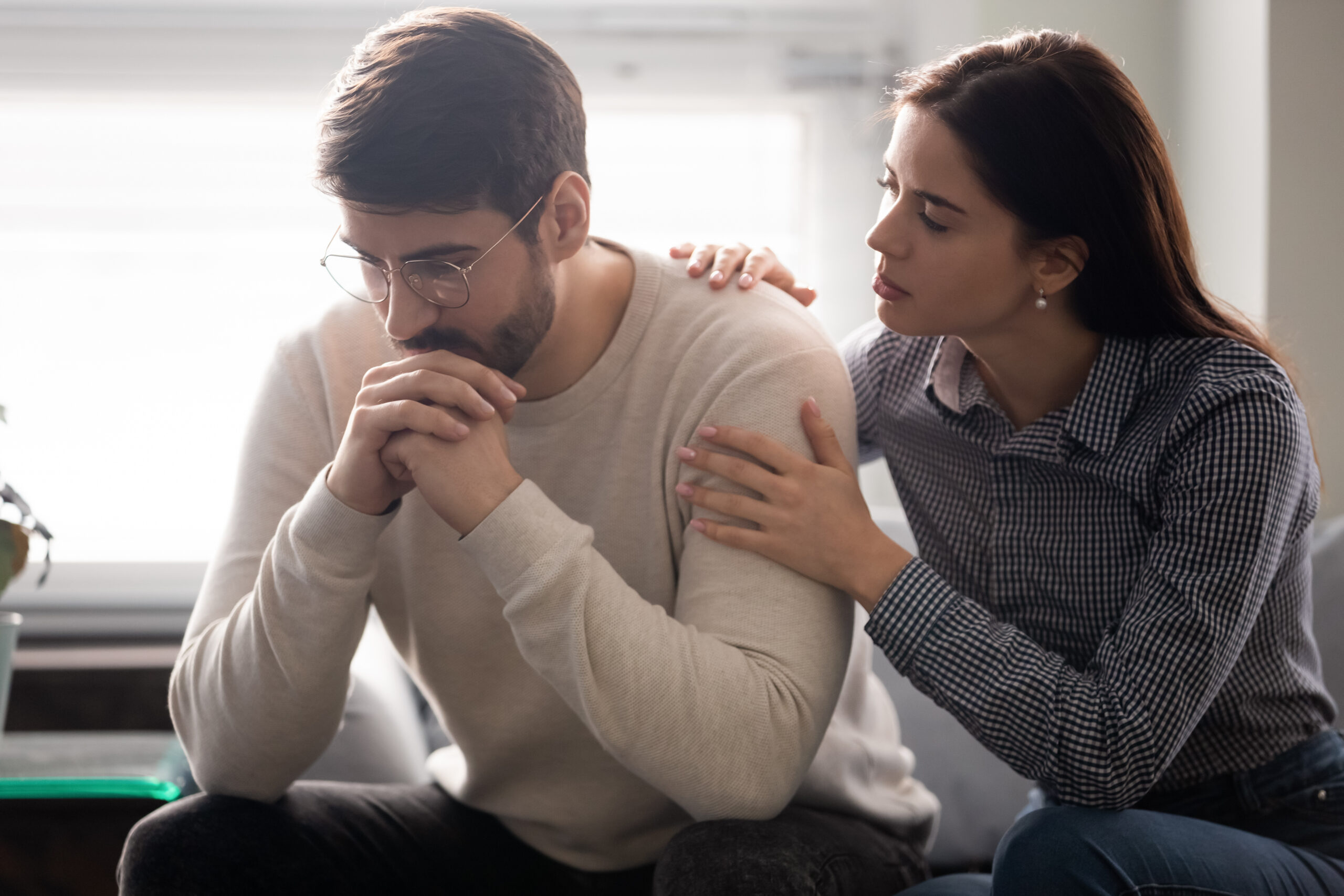Anxiety is a common mental health condition that affects millions of people worldwide, influencing their thoughts, emotions, and behaviors. While anxiety can be challenging to manage on a personal level, it can also significantly impact romantic relationships. Individuals with anxiety often experience excessive worry, fear of rejection, and difficulties with emotional regulation, which can create tension and misunderstandings between partners. However, with open communication, mutual understanding, and effective coping strategies, couples can navigate anxiety together and build a stronger, more resilient relationship.
According to the National Institute of Mental Health (NIMH), anxiety disorders affect approximately 31% of U.S. adults at some point in their lives (NIMH – Anxiety Disorders). Understanding how anxiety influences romantic relationships is essential for fostering a healthy and supportive partnership.
How Anxiety Affects Romantic Relationships
- Excessive Worry and Overthinking – Anxiety often causes individuals to overanalyze interactions, leading to fears of saying the wrong thing, disappointing their partner, or being abandoned. This can create emotional distress and unnecessary tension in the relationship.
- Fear of Abandonment or Rejection – Many individuals with anxiety struggle with relationship insecurity, leading to clinginess, reassurance-seeking, or withdrawal due to fear of getting hurt.
- Emotional Sensitivity and Mood Swings – Anxiety can heighten emotional reactions, making individuals more prone to mood fluctuations, irritability, or defensiveness in response to minor conflicts.
- Avoidance of Conflict – Some individuals with anxiety may fear confrontation and avoid addressing important issues, leading to unresolved tension and built-up resentment.
- Physical Symptoms Affecting Intimacy – Anxiety can manifest physically in symptoms such as fatigue, headaches, and muscle tension, which may impact intimacy and overall relationship satisfaction.
Common Relationship Challenges Caused by Anxiety
- Communication Barriers – Anxiety may make it difficult for individuals to express their feelings or articulate their needs clearly, leading to misunderstandings.
- Overdependence on a Partner – Some individuals with anxiety may rely heavily on their partner for emotional support, which can create strain if one partner feels overwhelmed by the responsibility.
- Misinterpretation of Behaviors – Anxiety can cause people to assume the worst in situations, leading to unnecessary doubts or conflicts based on misinterpretations.
- Fear of Commitment – In some cases, anxiety can make individuals hesitant about deepening a relationship, as they may worry about the future, potential heartbreak, or their ability to meet their partner’s expectations.
Strategies for Managing Anxiety in Romantic Relationships
- Open and Honest Communication – Being transparent about anxiety and how it affects the relationship helps both partners navigate challenges together. Expressing feelings without fear of judgment strengthens emotional connection.
- Setting Boundaries – Establishing personal space, alone time, and healthy boundaries can help prevent anxiety from overwhelming the relationship. Both partners should communicate their needs and respect each other’s limits.
- Practicing Reassurance Without Enabling – Offering support and reassurance is important, but constantly validating anxious fears can reinforce them. Instead, encourage problem-solving and self-soothing techniques.
- Engaging in Relaxation Techniques Together – Activities such as meditation, deep breathing, yoga, or taking walks together can help reduce anxiety and strengthen emotional bonds.
- Seeking Professional Help – Therapy, such as Cognitive Behavioral Therapy (CBT) or Couples Counseling, can help individuals manage anxiety and improve relationship dynamics. The Substance Abuse and Mental Health Services Administration (SAMHSA) offers resources for finding professional support (SAMHSA – Find Help).
How Partners Can Support a Loved One with Anxiety
For those in relationships with an anxious partner, providing support while maintaining personal well-being is essential.
- Educate Yourself About Anxiety – Learning about anxiety disorders can help partners understand their loved one’s struggles and avoid taking anxious behaviors personally.
- Offer a Safe and Non-Judgmental Space – Being patient and offering a listening ear can help anxious partners feel valued and supported. Avoid dismissing their worries or telling them to “just relax.”
- Encourage Healthy Coping Strategies – Support your partner in using techniques such as mindfulness, journaling, or therapy to manage their anxiety.
- Respect Their Triggers and Boundaries – If certain situations cause extreme distress, finding ways to compromise or ease into challenging scenarios together can be beneficial.
Strengthening the Relationship Despite Anxiety
- Prioritizing Quality Time – Engaging in fun and relaxing activities together helps shift focus away from anxious thoughts and fosters positive memories.
- Developing Conflict Resolution Skills – Learning how to address conflicts calmly and constructively reduces misunderstandings and strengthens emotional security.
- Practicing Gratitude and Affirmations – Expressing appreciation for each other and acknowledging the strengths of the relationship can help counteract negative thought patterns caused by anxiety.
- Focusing on Self-Care as a Couple – Encouraging each other to engage in self-care routines, whether individually or together, helps maintain emotional balance.
When to Seek Professional Help
If anxiety significantly disrupts the relationship, seeking professional guidance may be beneficial. Couples therapy or individual counseling can provide tools for managing anxiety in a way that strengthens the partnership. If anxiety leads to severe distress, panic attacks, or avoidance of important aspects of life, a mental health professional can offer specialized support.
Conclusion
Anxiety can create challenges in romantic relationships, but with mutual understanding, communication, and proactive coping strategies, couples can successfully navigate these difficulties together. By fostering an environment of emotional safety, practicing patience, and supporting each other’s mental well-being, partners can build a strong and lasting connection.
With the right approach, anxiety does not have to define or weaken a relationship—it can become an opportunity for deeper understanding, growth, and resilience as a couple.


